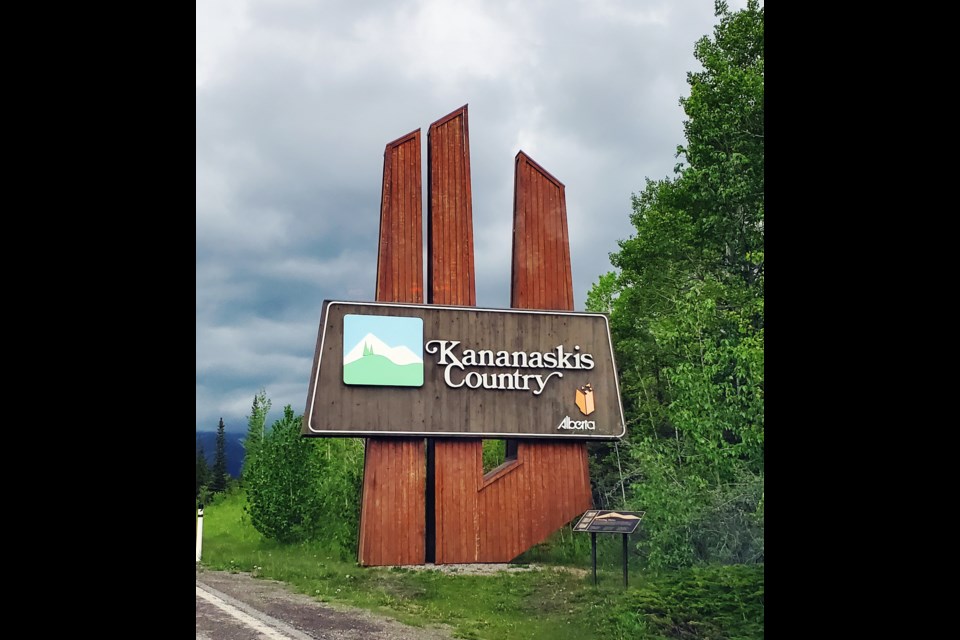KANANASKIS COUNTRY – The NDP is once again calling upon Alberta’s UCP government to scrap its $90 Kananaskis Conservation Pass following news the province is paying a private contractor a significant amount of the program’s revenue for enforcement.
Marlin Schmidt, NDP critic for Alberta Environment and Parks (AEP), said it’s time for the UCP to “recognize and correct its own mistakes” with the widely criticized provincial park pass during a Friday (Sept. 9) press conference in Calgary.
“Albertans own that beautiful and distinctly Albertan landscape and we should all be able to use it freely,” he said. “What’s even more galling is that the money the UCP is taking from Alberta families is not being put to use to conserve this area as the UCP originally claimed.”
Schmidt was referring to an invoice recently released through a Freedom of Information and Privacy Act request, which revealed AEP is paying Global Traffic Group in St. Albert $166,666 per month to enforce and monitor compliance with the conservation pass.
More than 146,000 passes have been sold in the program’s fiscal year so far, generating more than $7.1 million in revenue since the beginning of April, according to an email statement from AEP. About $833,000 of that has been spent on private enforcement measures in K-Country in the same time frame.
The three-year contract with Global Traffic Group is worth $2 million per year, said Rob Williams, AEP senior press secretary in the email, adding compliance, which is determined through licence plate scans, has been about 74 per cent this year.
Williams called the approach “cost-effective, fair and efficient” in comparison to other considered measures.
“Enforcement needs to be a priority to manage high visitation and increased pressure on the landscape,” he said. “Alternatives like establishing monitored gates or toll roads would require millions in capital investment at multiple sites throughout the region, plus staffing costs.”
Schmidt, however, called the spend “absurd” and said the UCP’s lack of transparency around where pass revenue is directed is an insult to park users.
“Remember when you’re forced to pay for your fee, while the UCP enjoys a $13-billion surplus, they are charging you $90 to pay someone to make sure you paid your $90,” he said.
“It’s a waste of Albertans' money and another insult to families who just want to enjoy the great outdoors without the UCP’s hands in their pockets.”
The environment critic, who also serves as MLA for Edmonton-Gold Bar, added he’s heard from many Albertans who say they haven’t seen improvements on the ground, despite the pass generating $12 million in revenue last year alone.
“The garbage cans are overflowing, the outhouses need attention, the parking lots are still in rough shape,” he said. “I’ve questioned previous [Minister of Environment and Parks Jason Nixon] a number of times, and he’s failed to be transparent with how he’s spent the money collected from the K-Pass in the past.”
The pass, which was implemented in June 2021, was created with the intent of offsetting costs associated with conservation activities, search and rescues, services and infrastructure, following a record year for park visitors in 2020, which resulted in added strain on the protected area's resources and wildlife.
Since the program was first announced in April 2020, the UCP has repeatedly said it would use all the revenue collected from the sale of each pass to support K-Country initiatives like trail, road and facility maintenance, along with visitor and public safety programs, conversation efforts, services and infrastructure.
The province announced it would hire and train 19 new conservation officers across Alberta, made possible by the Kananaskis Conservation Pass, less than a year later. Only six of those officers would be stationed in K-Country, however.
Schmidt said many Albertans are understandably disappointed by the UCP’s approach with the conservation pass in K-Country, one of the province’s most treasured provincial parks.
“People had high hopes that they would see some significant improvements in Kananaskis Country with the introduction of the fee and that’s not been the case.”
If elected in the next election, the NDP has sworn to abolish the pass and suggested supporting K-Country and other Alberta provincial parks with voluntary contribution and personalized licence plate programs instead.
According to AEP, revenue from the Kananaskis Conservation Pass' 2021-2022 fiscal year was spent on:
- staffing, including more than 30 new seasonal positions ($3.5 million)
- hiring and supporting conservation officers in K-Country ($1.5 million)
- running the Kananaskis Country Public Safety Program ($1.5 million)
- operating subsidized facilities including the Canmore Nordic Centre ($1 million) and William Watson Lodge ($750,000)
- planning infrastructure upgrades to the Canmore Nordic Centre ($1 million)
- regional transit initiative with the Town of Canmore ($994,000)
- investing in local volunteer trail organizations ($550,000)
- supporting visitor services and information centres ($500,000)
- contracting traffic management services ($350,000)
- grooming winter trails ($250,000)
- increasing support for search and rescue operations ($100,000)
The Local Journalism Initiative is funded by the Government of Canada




